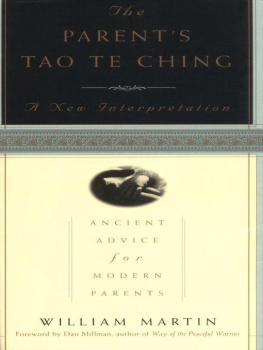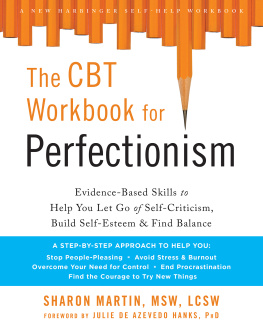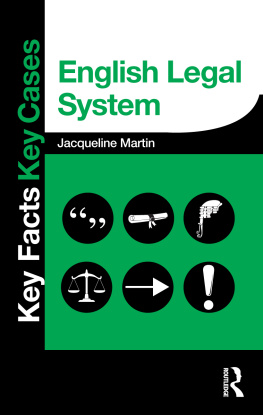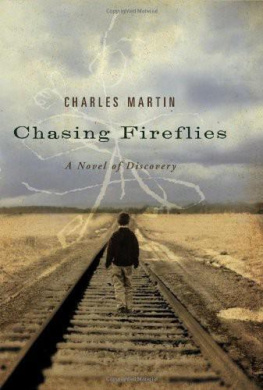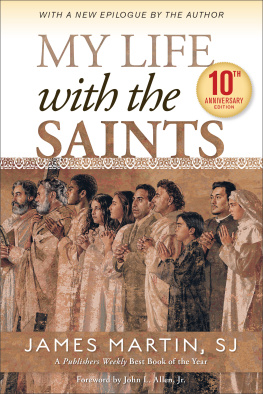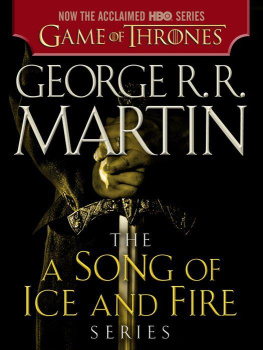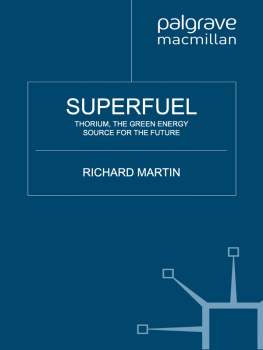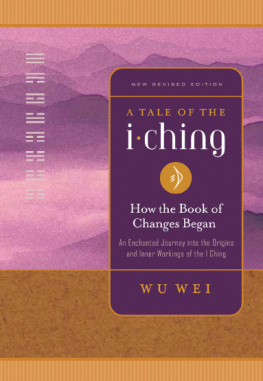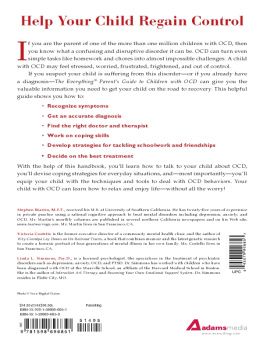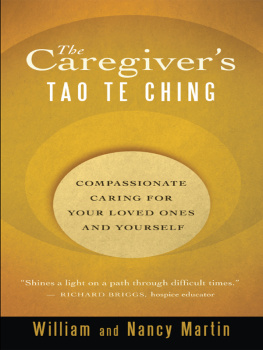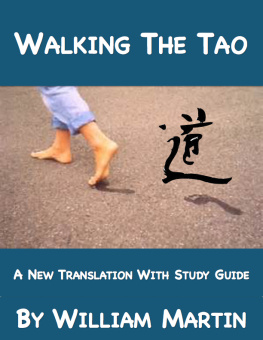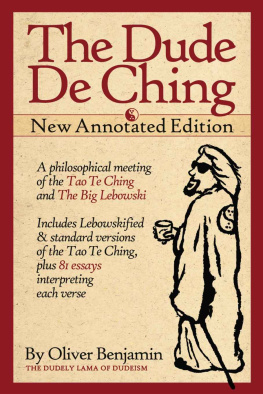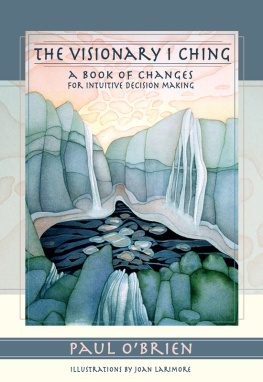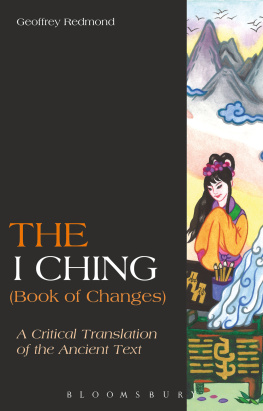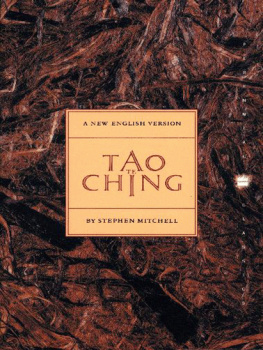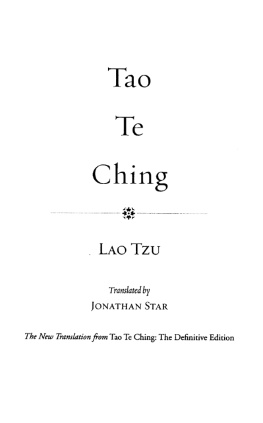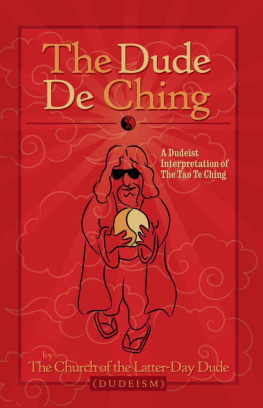Table of Contents
Published by
Marlowe & Company
An Imprint of Avalon Publishing Group Incorporated
161 William Street, 16th Floor
New York, NY 10038
Copyright 1999 by William Martin
Illustrations copyright 1999 by Hank Tusinski
Foreword 1999 by Dan Millman
All rights reserved. No part of this book may be reproduced in whole or in part without written permission from the publishers, except by reviewers who may quote brief excerpts in connection with a review in a newspaper, magazine, or electronic publication, nor may any part of this book be reproduced, stored in a retrieval system, or transmitted in any form or by any means electronic, mechanical, photocopying, recording, or other, without written permission from the publisher.
DESIGN BY PAULINE NEUWIRTH, NEUWIRTH & ASSOCIATES, INC.
Library of Congress Cataloging-in-Publication Data Martin, William
The parents Tao te ching / by William Martin. p. cm.
ISBN 1-56924-662-9
1. Parenting. 2. Taoism. 3. Lao-tzu. Tao te ching.
1. Title.
HQ755.8.M358 1999
649.1-dc21
98-54591
CIP
9 8
Manufactured in the United States of America
To my children, John and Lara.
They are the most wondrous of souls.
FOREWORD
AN ART WE LEARN BY DOING
ITS A RARE THING when someone is able to improve on a classicnot only improve it but wrap it in ribbons and offer it as a gift to the modern world. It requires a man of rare wisdom, insight, and heart. Bill Martin is such a man. The Parents Tao Te Ching is such a book. Not since the Tao of Poob has Taoist wisdom transmogrified into something so practical, gentle, and good.
Few things in this world are as important as raising children. In every age, every era, every time and place, children are our treasures, our future, our immortalitythe vital link in the chain of humanity. What better form of service? What better charity to whom we might give of our wealth, our hands, and our hearts? Children remind us of who we were and who we may yet become. They are our innocence, our purity, our potential.
Children have never been very good at listening to what their parents tell them, James Baldwin wrote, but they never fail to imitate them. We can only teach by example, Bill Martin reminds us. By improving our own actions, and, in the words of Aldous Huxley, trying to be a little kinder, we raise not only our children, but our childrens standards.
As a father of three and grandfather of two, Ive come belatedly to a fuller appreciation of parenthood as a path of spiritual growth. Its not for the faint-hearted, and its not for everyone. Making babieshaving childrenis a capacity bestowed by biology, but raising them well is an art we learn by doing. Mature adults dont necessarily create children, the proverb goes, but children help create mature adults.
The Tao Te Ching, with all its universal wisdom, never struck me as a manual on child rearing, but why not? Universal wisdom applies to every domain, maybe even gardening or motorcycle maintenance. But Bill Martin brings some of the inspiration of Kahlil Gibran, and perhaps even Rumi, to create not abstract poetry, but divinely practical prose. A gift to parents everywhere, The Parents Tao Te Ching is filled with reminders of who we can become as we artfully help our children, the same way we might gently guide the branches of a tree to grow straight and tall toward the sun.
Another proverb reminds us that children are not vessels to be filled, but candles to be lit. So are parents. So are we all. By listening to the wisdom of the Tao as we raise our children, we raise ourselves and lift our spirits.
Dan Millman
San Rafael, California
Author of Way of the Peaceful Warrior
December 1998
INTRODUCTION
THE TAO TE CHING WAS written more than twenty-five hundred years ago. Its authorship is shrouded by legend but is attributed to the legendary Chinese sage, Lao Tzu. It is a book of practical advice for leaders and philosophers, attempting to express glimpses of the inexpressible Tao, or The Way. Legend has it that Lao Tzu wrote the brief sentences with great reluctance, knowing that the moment the characters appeared on paper the essence of the Tao itself would be lost. Yet his work has become the most widely published book in the world next to the Bible. His brief thoughts have formed the foundation for the modern worlds understanding of Taoist philosophy and have deeply affected all philosophical systems.
The Tao Te Ching was written in a poetic style using Chinese characters. A single Chinese ideogram may have a complex set of meanings, the shades of which would require paragraphs of English to capture. Yet any English translation must retain the simple, direct, brief impact of the original. The book you have in your hand is not a translation of the Tao Te Ching. It is a rendering of the wisdom of the Tao specifically for modern parents. For those who wish to explore the Tao Te Ching itself there are several excellent English translations available.
In presenting the Taos message for parents, I have taken what I feel is the essence of each chapter of the Tao Te Ching and expanded it into a combination of free verse and pointed advice. I have tried to avoid being overly wordy. An excess of words would violate the spirit of Lao Tzu. I have, however, attempted to be wordy enough to be of practical help.
I have been a student of the Tao Te Ching for many years. The depth of its insights and the power of its gentle nurture have deeply affected my spiritual, emotional, and even physical journey. It has especially affected my adventure as a parent of two remarkable children. The great themes that permeate the Tao, such as unity ; responding without judgment; emulating natural processes; and balancing between doing and being are central to the health of loving parent-child relationships.
In this volume I have generally used the word, Tao, to refer to the central concept underlying Lao Tzus work. It may also be translated as, The Way, or, The Way of Life. I sometimes find it helpful to think of it as, The Way Things Naturally Work. By its very nature this mysterious Tao does not lend itself to definition. As Lao Tzu says, The Tao that can be told is not the eternal Tao. (Chapter 1, Tao Te Ching) Some Westerners have linked the Tao with the idea of God. I resist this link in most cases because of the narrow and sectarian images often conjured by the word, God. It might be helpful to think of the Tao as the Mystery behind all human ideas and definitions of God ; a Mystery that refuses to be caught in the net of human words and definitions. On one or two occasions I have used words like God or Divine Life when referring to the Tao. Please understand that in these cases I am using the words in their broadest possible meaning. The God that can be told is not the eternal God.
I am pleased that Hank Tusinski has produced the brush paintings for this book. In keeping with the nature of the Tao, they are ordinary. That is, they are simple renderings of natural subjects. It is this ordinary, simple, natural nature of Taoist painting that makes it accessible to all. As Lao Tzu used as few words as possible, so the Taoist artist uses as few strokes as possible. In the hands of an artist such as Hank Tusinski, the paintings come alive with a power far beyond the simple ink strokes. I hope that our parenting may find the same combination of boldness, grace, and simplicity.

